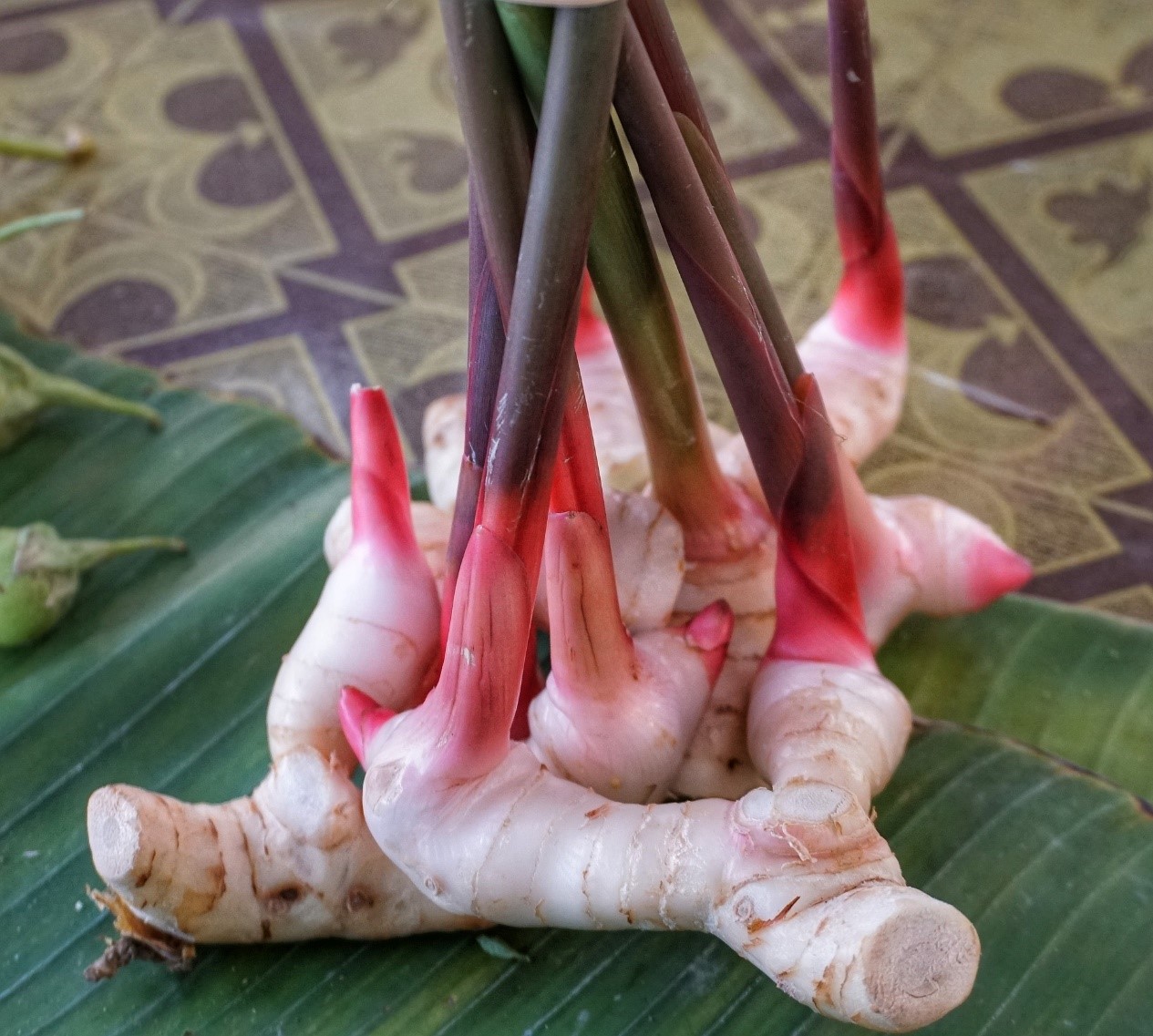Galangal Herb

Proven Health Benefits of galangal herb:
- Improves digestion.
- Improves brain health.
- Prevent cancer.
- Strengthens the immune system.
- Boost's sperm count.
- Treats arthritis.
- Improves skin appearance.
What is galangal?
Galangal, scientifically know as Alpinia galanga, a ginger-like herb with finger-like root stalks belonging to the Zingiberaceae family. Native to India, South China but currently cultivated in Taiwan and Southeast Asia countries like Malaysia, Thailand, and Vietnam. Can be eaten raw or cooked similar to ginger and turmeric.
Galangal is different from ginger and turmeric. While galangal is pale white with a sweet flavor and a citrusy, floral, and pine-like aroma, ginger is yellow with a citrusy, sharp, and spicy flavor. Turmeric is the most bitter of the three with a pungent flavor. Galangal is also known as Java Galangal, Thai Galangal, Laos Root, Chewing John, Kulanjan, Colic root, or Blue Ginger.1
What is galangal useful for?
In ancient times, galangal was used both by both the Asians and Arabs as medicine. It is used to treat inflammation, improve brain health, strengthen the immune system, boost male fertility, improve skin appearance, relieve respiratory complications, prevent infections, and cure cancer.2
Traditionally in cooking food, galangal is used as the main ingredient in many spicy dishes such as sauces, pasta, and Thai Cuisines to add flavor due to its distinct flavor. Today galangal is used in making curries, stir-fries, salads, and soups.
Health benefits
- Treats arthritis by regulating inflammation hence used in the management of arthritis and edema.
- Promotes male fertility by boosting sperm count and increasing sperm density and motility, which affects fertilization.
- Strengthens the immune system by boosting the body's immunity due to vitamin C and anti-oxidants presence.
- Improves digestion by reducing excessive digestive acid secretion, flatulence, constipation, and cramping.
- Reduces the risk of cancer by inhibiting cancerous cells' growth as it contains phytochemicals that are anti-carcinogenetic.
- Prevents infections by inhibiting the growth of bacteria, fungi, and yeast due to its anti-microbial properties.
- Improves the skin appearance by reducing cell damage caused by the presence of free radicals as it is rich in anti-oxidants.
Nutrition
Per 100grams, galangal contains:
- Calories 71
- Sodium 18mg
- Total carbohydrate 15g
- Dietary fiber 2g
- Protein 1g
Is a source of Sodium, Vitamins C and A, Iron, flavonoids and phytonutrients.
Toxicity
Avoid using galangal when under any medication or during pregnancy without consulting your doctor.